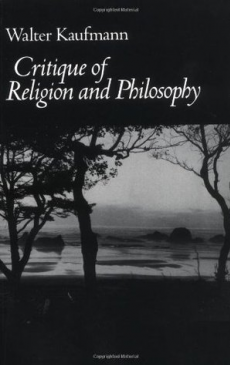

Critiques of Religion Revision Notes
Psychological
Criticisms of Freud’s views on religion
‘Almost all the evidence that Freud presents has been discredited in one way or another’ says Palmer.
Primal Horde theory is not supported as not all societies have totems which they worship, nor does everyone have this ‘passed on guilt.’
Neilson and Jones found that rather than turning to God because of a person’s attachment to their father, the concept of God correlates more highly due to the relationship with their mother.
The Oedipus complex is severely weakened by Anthropological and psychological evidence disregarding Freud’s ideas about sexual desire leading to the move towards religion.
he lacks factual evidence.
He based the horde on ideas of Darwin, however they were just ideas.
To say that religion is a delusion of the neurotic patient, surely Freud would need real evidence to back this bold statement.
Freud makes assumptions about religion and does not proceed to give explanations as to why he makes these judgements. This critique questions the basis of his argument.
Malinowski discredits Freud’s Oedipus complex arguing that the family is not the same in every society and so the Oedipus complex cannot be universal.
It cannot be the cause of all religion if it is not universal. For example, in Trobriands, the family is matrilineal and the Father has nothing to do with the upbringing of the children. Therefore, there is no Oedipus Complex there and their religion must require a different explanation.
Jung
Jung disagreed with Freud with regard to religion and sex. Jung believed that we are all born with the tendency to consider similar images, the concept of God being one of these, thus believing that these images come from the ‘collective unconscious’ mind.
The part of the brain which formulates this images was named ‘archetype.’
Jung said that God is an ‘absolutely necessary psychological reality,’ God is real to those who experience the archetype, it is a part of human personality.
The process of ‘becoming oneself’ is known as individuation, Jung believed this was the religious process.
‘The symbols of divinity coincide with those of the self.’
Therefore Jung says that to reject religion you are rejecting yourself, you are not complete until individuation occurs.
Criticisms
Geza Roheim argues that as humans share the same experiences, the archetypes is unnecessary. It is not shocking that humans formulate similar myths.
Some religious myths come from the experiences of a particular community and so it seems unlikely that they are born out of an idea which is present in all humans.
Jung states that atheism itself is a religion; the belief in no God, in his argument it seems that he does not allow for a counter argument.
If his theory is not open to falsification, some would argue that it is meaningless.
Buber argues that an experience which takes place in the mind, rather than externally to the individual, is not a religious experience.
As Jung seems to suggest that any vision is religious, but fails to understand the uniqueness of a religious experience and the effect they have on religious believers, this weakens Jung’s argument greatly.
Conclusion
Conclusively, both do not precisely reject God’s existence, but rather yet identify flaws but do not continue their explanations with detailed evidence. As Freud identifies religion as an illness, and Jung recognises it as a cure, through them counteracting each other, overall this weakens their arguments. If one argument cannot support another, this would suggest that what they have stated is an assumption and not a strong criticism to demonstrate that there is no God.
Image- https://www.goodreads.com/book/show/253624.Critique_of_Religion_and_Philosophy

0 Comment:
Be the first one to comment on this article.